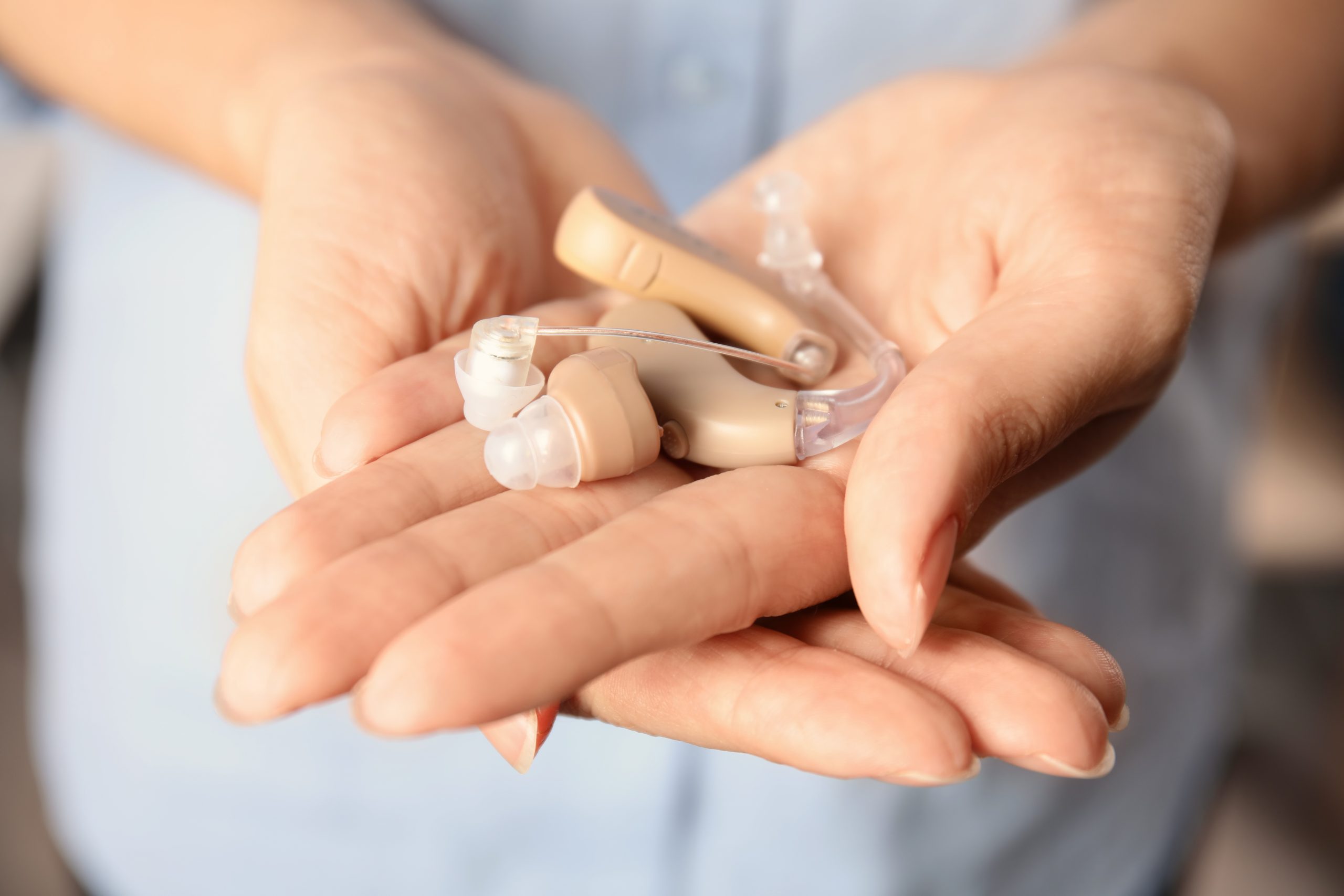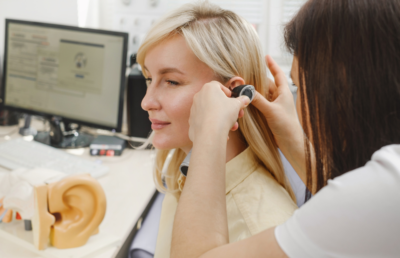Cheerful bird song, punch lines, and sweet sentiments from your loved ones. There are so many sounds in life you surely don’t want to miss. If you think that you might be experiencing hearing loss, a hearing aid is the most powerful investment you can make in your quality of life. But with so many types available on the market, choosing the one that’s right for your needs is not always easy. Here are 10 tips to consider before buying hearing aids.
1. Consult an audiologist
According to the Hearing Loss Association of America, approximately 48 million Americans have some degree of hearing loss — it’s fairly common. If you think you may be experiencing hearing loss, the best place to start is the audiologist. Audiologists are highly skilled hearing health professionals who provide care for people of all ages. They can conduct thorough tests to determine the degree of your hearing loss, explain the results, and work with you to make a plan to help manage your hearing loss. They will be your biggest ally in your battle for better hearing. If you think you’re ready for an appointment, you can book one here today.
2. Have realistic expectations
Bear in mind that while today’s hearing aids are amazing in their technological capabilities, they cannot completely restore normal hearing. On the other hand, they can improve the quality of life for users by amplifying soft sounds and reducing competing loud background noises. Your hearing aid can significantly improve your ability to interact with the world around you, including hearing and understanding others when they talk, engaging in group activities, watching television, and improving sound awareness for safety.
3. Research your options
There’s no ultimate hearing aid. Always base your decision on what specifics you need for your lifestyle and hearing loss. You may love listening to your favorite television shows, might prioritize hearing people around you better, or perhaps you’re looking for a hearing aid with a music setting. Buying a hearing aid is a very personal choice. Do your research and make sure you communicate your priorities clearly to your audiologist so they can easily help you find the perfect device. If you’re new to hearing devices, you can find some key information here.
4. Research the different types
Hearing aids vary in the way in which they fit your ear. Some fit inside your ear while others sit behind. Some are small while others are larger. Be sure to research your options. You don’t have to make up your mind but having an idea or preference may help your audiologist find a device that’s just perfect for you.
5. Keep an open mind
Having said that, be ready to have your ideas challenged. If a friend has recommended you a device they swear on, keep in mind that it might not work for you at all. Plus, your hearing loss severity or type may mean that only certain devices will work for you. Don’t set your heart on the cheapest or smallest opinion. Trust the process and the advice of your audiologist.
6. Know the battery lifespan
The longevity of the battery will change from one hearing aid to the next and will also depend on how often the device is used. Batteries can be rechargeable and come in different sizes. Smaller, compact hearing aids require smaller batteries. On the other hand, while a bigger battery will mean a bigger device, it can sometimes be more cost-efficient. If the idea of changing batteries frequently doesn’t suit your lifestyle, you could either opt for an aforementioned rechargeable hearing aid or choose one that takes bigger batteries so you can change them less frequently.
7. Give yourself time
If you’re new to hearing aids, it may take a few weeks before you’re completely comfortable with them. Wearing them may feel strange at first but give your hearing aid a fair trial. Be patient as you adjust to hearing and noticing sounds you may not have heard in a long time. After getting your hearing aid, your hearing healthcare professional should allow you some time to get to know the product. Make full use of this time but be reasonable. At first you may find yourself even disliking your new hearing aid, but eventually, you’ll find it invaluable.
8. Know that you will probably need two devices
While some people get diagnosed with unilateral hearing loss, which means hearing loss in one ear, the majority of hearing loss sufferers have hearing loss in both ears (bilateral hearing loss). If you belong to the latter group, wearing both hearing aids is crucial when it comes to treating hearing loss. Failure to do so could cause an imbalance between your ears.
9. Have a financial plan
The price of hearing aids can vary greatly, and the difference can be significant. While Medicare doesn’t cover any price of the hearing aids, some supplemental and commercial plans do have some type of hearing aid benefits. Do your homework so you can make a plan to pay for your hearing aids and stay within your budget. Your hearing care provider should give you several options that will work for your hearing and your wallet. Make sure you allow plenty of time to research well. At Chicago Hearing Services, we help you determine benefits and eligibility and offer a 12 month no-interest payment plan for those who qualify.
10. Don’t choose your hearing aid on your own
As there are many devices available on the market, it may be tempting to buy hearing aids on the cheap. Keep in mind however that skimping on hearing aids may end up costing you more in the long run. If personalized correctly, hearing aids can mean a huge difference in your quality of life. It’s not something to pick up off-the-shelf, buy online or from a big retailer. Always speak to a professional audiologist and let them help you select the best hearing aid of your life.
On the same note, hearing health is such a huge market that it’s no wonder that big players like Costco have entered the game. Much like they’ve done with vision, they now offer hearing tests and hearing aids to their customers. As a result, the question that audiologists get asked most is: “why shouldn’t I go to Costco for a hearing aid?” There’s more to this than you’d think and so many reasons why it’s not worth taking that risk, that we wrote a special guide for it!





